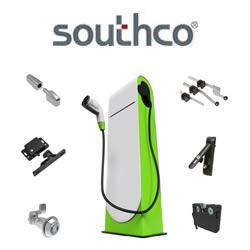Viridi Parente Advances Circular Energy Economy with First Shipment of Batteries to Li-Cycle for Recycling
Prioritizes sustainability of key battery material, avoids landfill disposal, enables wider adoption of safe lithium-ion batteries for industrial, commercial, medical, and residential use
Viridi Parente, Inc., a developer of innovative battery technology that can be safely installed and operated in nearly any environment or location, today announced it has shipped its initial batch of batteries to Li-Cycle Corp., an industry leader in lithium-ion battery resource recovery and the leading lithium-ion battery recycler in North America. By recycling 100% of its end-of-life cells, Viridi Parente is expanding the company's commitment to energy sustainability and the circular energy economy by enabling the wider adoption of safe lithium-ion batteries for industrial, commercial, municipal, medical, and residential use.
"It was important to us to find a recycling partner that shares our vision of growing the green economy through innovation and by minimizing the overall environmental footprint of electrification solutions. Together with Li-Cycle, Viridi is becoming part of the solution to the global end-of-life lithium-ion battery issue," said Jon M. Williams, CEO of Viridi Parente.
As of 2019, just over half of the global 180,000 metric tons of lithium-ion batteries available for recycling were recycled. Li-Cycle has the capacity to process up to 10,000 tons of spent lithium-ion batteries per year, and Viridi Parente plans to recycle 100% of its end-of-life cells.
Traditionally, the battery recycling process involves a smelting process that results in high emissions and recovery of less than 50% of the materials. Li-Cycle recovers up to 95% of the materials found in lithium-ion batteries through its patented, Spoke & Hub Technologies™. The zero-waste process converts manufacturing scrap and end-of-life batteries into intermediate products, including "black mass," a powder substance containing cobalt, nickel, lithium and other valuable elements. The "black mass" is processed through a hydrometallurgical circuit to produce critical, battery grade-materials that can be returned to the economy. This minimizes the overall environmental footprint of the end-to-end resources recovery process and reduces the intensity of greenhouse gas emissions that would otherwise be produced from mining these finite resources.
"Creating a circular supply chain is a critical step in bringing battery systems to the point-of-use - to buildings and mobile applications - which is an important part of meeting the state's and our nation's key climate initiatives," Williams said.
In New York, 66% of the state's greenhouse gas emissions are attributed to transportation and buildings. Viridi Parente delivers safe battery technology for these point-of-use applications. The company's Green Machine business provides high-performance mobile electrification for traditionally diesel-fueled construction equipment; its Volta Energy business provides industrial, commercial, medical, municipal, and residential energy consumers with clean and reliable backup power and an ability to manage and reduce overall consumption. Viridi's architecture is the only design in the market that can be safely installed in nearly any environment or location.
In addition to avoiding landfill disposal for its batteries, Viridi Parente's relationship with Li-Cycle builds upon the company's pledge to facilitate the economic development of its local community and shape an energy ecosystem in New York that helps meet the state's decarbonization goals.
Viridi's batteries are manufactured in its facility in Buffalo, New York, which improved the local community by renovating a fossil-fuel-powered plant into a solar-powered facility. Now the company's batteries will be recycled at Li-Cycle's facility in Rochester, New York, a similar adaptive reuse project housed in a former Eastman Kodak facility.
"This partnership with Li-Cycle is a very good example of how local companies can work together to create a fully renewable economy that benefits all, regardless of their zip code," commented Dennis Elsenbeck, President of Viridi Parente.
"We have a great appreciation of Viridi Parente as we both share a commitment to the development of an energy ecosystem that prioritizes sustainability as it pertains to lithium-ion battery resource recovery," said Ajay Kochhar, President, CEO, and Co-founder of Li-Cycle. "Our commercial lithium-ion battery recycling facility in Rochester, New York, is a great example of our environmental initiatives as we transformed a Kodak facility that previously housed photo processing chemicals, improving the quality of life for the surrounding communities. We are excited to receive our first shipment of batteries from Viridi Parente and thank them for contributing to our mission of closing the lithium-ion battery supply chain loop."
About Viridi Parente
Viridi Parente (Viridi) is a disruptive energy company in Buffalo, New York, that is changing the way we use energy, improving systems, communities, and lives. Viridi deploys safe lithium-ion battery technology into applications that have been historically dominated by fossil fuel energy sources. Its innovative architecture is constructed from materials used for aerospace and military applications and is the only design in the market that can be safely installed and operated in nearly any environment or location. Through its subsidiary, Green Machine Equipment, Viridi is bringing quiet, fully renewable mobile energy solutions to products in construction equipment, waste disposal, last-mile delivery, and other portable industrial markets. Through its subsidiary, Volta Energy Products, Viridi brings stationary, point-of-use storage technology that is safe, locatable, and reliable to industrial, medical, commercial, municipal, and residential building applications. Learn more at: www.viridiparente.com.
About Li-Cycle
Li-Cycle Corp. (Li-Cycle) is on a mission to leverage its innovative Spoke & Hub Technologies™ to provide a customer-centric, end-of-life solution for lithium-ion batteries while creating a secondary supply of critical battery materials. Lithium-ion rechargeable batteries are increasingly powering our world in automotive, energy storage, consumer electronics, and other industrial and household applications. The world needs improved technology and supply chain innovations to better manage the end-of-life of these batteries - and to meet the rapidly growing demand for critical and scarce battery-grade materials through a closed-loop solution.
Featured Product

